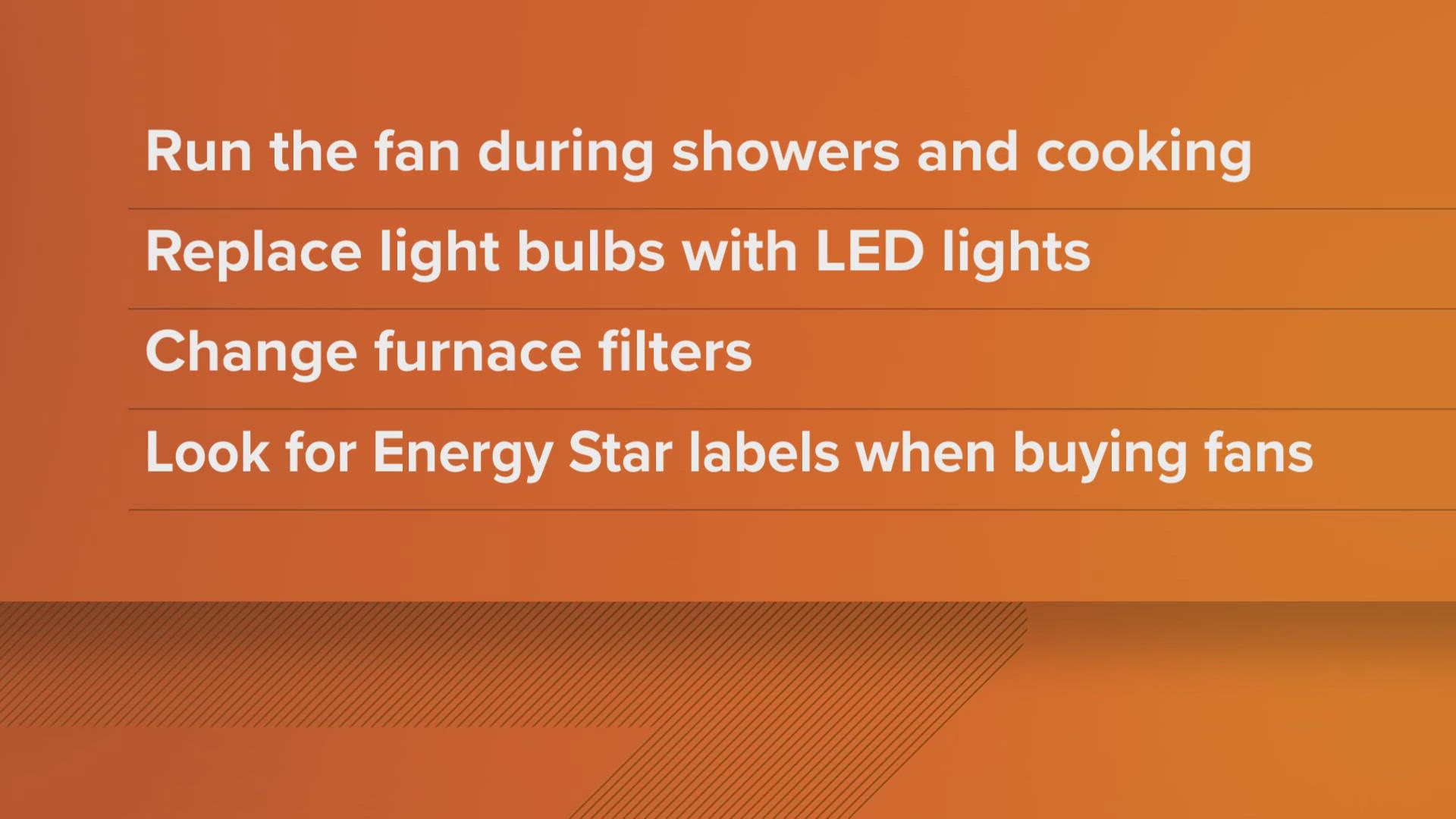WASHINGTON — As temperatures continue to climb, your energy bill likely is as well. Here are tips to help you save money during yet another heat wave.
Casey Murphy, the SVP of Quality and Standards at Pearl Certification, said the climbing costs can mostly be tied to using your air conditioning unit -- but it isn't the only energy and subsequently wallet drain.
"That system is both lowering the temperature in your home, but it's also taking away that humidity as well. And by doing both of those things, it's working really hard," Murphy said. "But really, the way to lower the bills with your air conditioning system is not just the equipment."
Pearl Certification specializes in home certifications focused on energy efficiency and bringing attention to the value that adds to a home. It is the only national sponsor of the U.S. Department of Energy's Home Performance with ENERGY STAR® program and partners with the National Association of REALTORS® Green Resource Council.
First, Murphy answered a common question: Is it better to keep your A/C on constantly at a consistent temperature or to turn it off and on/adjust it based on how hot it is outside?
"We have found that sometimes playing around with a thermostat actually makes it less efficient for the equipment," he said. "They now have new smart thermostats that can kind of understand your home's profile, and can help you manage that in this kind of set it and forget it."
Beyond purchasing a smart thermostat and keeping your air conditioner set at a consistent temperature, Murphy said there are multiple steps you can take to lower your energy usage and bill right now.
- Addressing a home's humidity, he said a lot of excess comes into our homes through cooking and showering. So, his first tip is to take shorter showers and make sure you run the fan in your bathroom to filter the humidity out. If you’re boiling water while cooking for example, he said to turn on the kitchen fan to get the humidity out there.
- Swap out incandescent light bulbs for LED lights, because Murphy said the old fashioned ones dump about 90% of energy into waste heat that increases your home’s temperature.
- Change your air conditioning/furnace filters, because they often get clogged and drive up energy costs.
- Look out for the Energy Star label when buying ceiling fans or dehumidifiers, for example, because they will be the most energy efficient.
- If possible, cool down at night via windows. But only if the indoor temperature and indoor relative humidity are significantly higher than outdoors (like after a thunderstorm). Of course, in the DMV, outdoor humidity is always a concern and limits our opportunities to cool off by opening windows.
Elaborating on home humidity, Murphy offered the example that if your thermostat says 82, the feel like temperature is:
- About 82 IF relative humidity is 50%. He said that’s pretty good.
- But it can feel like 90 if your indoor relative humidity levels are approaching what we normally see in DC summers.
"There are things that you can do in the here and now over, you know, the next couple of days when we're having a heatwave, but you really should be looking at what I can do in the next two months, the next six months in the next year or two to make your home higher performing, use less energy and deliver more comfort and indoor air quality," Murphy said.
Those include educating yourself on how to make your home more energy-efficient, through tools like Green Door.
He said it is a free tool for consumers that is available online or via Apple Store, and Google Play, which offers tips, tricks, and customized recommendations based on your home.
In the longer term, Murphy suggests making the following changes:
- Air seal your attic - using a professional. Air sealing is not just around windows and doors. Your home’s attic plane is often the most important area to seal - and it requires a professional with a blower door to do it well.
- Replace your HVAC system - ideally with a heat pump that delivers efficient comfort in the summer and the winter, especially if it has not been replaced in over a decade.
- Get an energy assessment - utility programs like SMECO, BGE, Pepco, Dominion, etc.
- Best in class is Home Performance with ENERGY STAR with a comprehensive assessment, blower door, and other diagnostic testing
- Work with professionals who understand how their work impacts the whole-house. Some HVAC contractors only know how to sell you a box. Other HVAC contractors understand how that box interacts with the ductwork, as well as your home’s insulation, air sealing, and other features that make your HVAC equipment run harder or easier.
- Capture the value of your investment. Studies show that homes that have high-performing home features are more valuable - they can sell for more and can be appraised for more. Consumer can certify their home’s energy efficient features within Green Door that captures the value of their investment. When refinancing or selling, his company, Pearl, provides documentations that helps maximize your return-on-investment.
"You're kind of stuck in a quandary of, do I be uncomfortable? And have, you know, really, issues with my health and comfort? Or do I jack up my energy bills, and that's something I can't afford." Murphy summarized. "Ideally, you can actually live in an energy efficient home that has affordable energy bills, if you have the right combination of home features and equipment."

